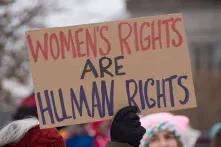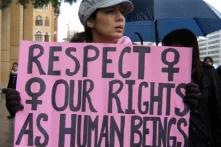Beijing+20 - Women in Power and Decision-making
The Beijing Platform for Action called for equal access and full participation of women in power as well as in decision-making processes.
Since then, minor progress has been made, such as the introduction of a women’s quota in cer-tain countries or the advancement of women to heads of government. And still, women continue to be heavily under-represented in positions of power and decision-making. Structural discrimination means that women account for only a tiny portion of decision-makers in business, politics and virtually every area of society (media, universities and colleges, culture, sport, etc.). Socialization, negative role images, stereotypes and the lack of accessibility to networks for women increase the tendency for men to continue to be left to reach decisions.
Germany is a prime case in point: proposals, calls for change, voluntary self-declarations – in the past, nothing has helped to expand the share of women in executive positions. On the contrary, the proportion of women holding board positions in DAX-30 companies has actually decreased. Yet, a quota for women in business and public service has been the subject of extensive debate in Germany unlike virtually any other bill.
Even twenty years after Beijing, severe prejudice and discriminatory practices still impede women’s path to power and decision-making.
Beijing+20 in the Regions
Good to Know
- Progress of the World's Women 2015/2016: detailed report by the UN Women on the economical barriers facing women, and strategies of improving the political participation of women on a global scale. more>>
- Beijing Platform for Action
Read the 1995 Beijing Declaration and Platform for Action here
[PDF].
An overview the Platform's 12 critical areas of concern by the UN Women. more>> - Women in Armed Conflicts: in the context of the CSW 59, the GWI co-hosted an event at concering a pressing issue for the Platform - women in armed conflicts. more>>
GWI-Newsletter
Beijing+20 - critical areas
- Women and poverty
- Education and training of women
- Women and health
- Violence against women
- Women and armed conflict
- Women and the economy
- Women in power and decision-making
- Institutional mechanisms for the advancement of women
- Human rights of women
- Women and the media
- Women and the environment
- The girl child
- Across Areas


